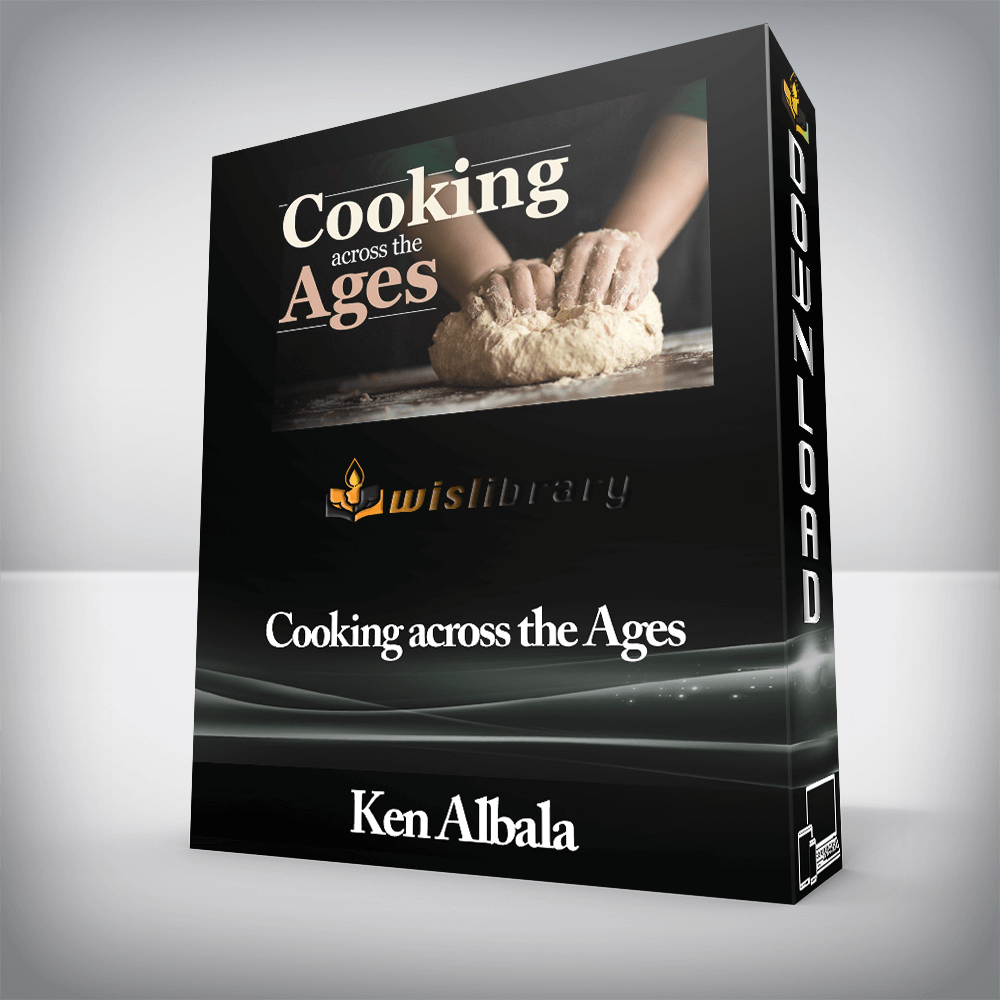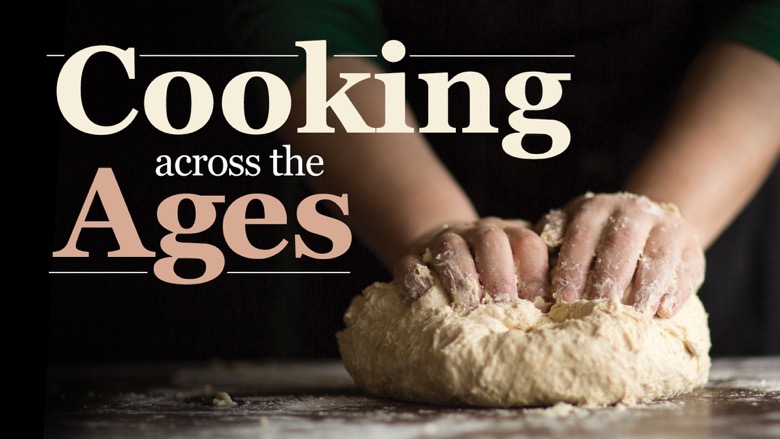

In Cooking across the Ages, award-winning Professor Ken Albala of the University of the Pacific takes us on a fascinating international…


It may seem monomaniacal, but I teach about food, I write about food, I love to cook, I read about food for leisure–what better recipe is there for happiness than to make work and play completely seamless?
Institution: University of the Pacific
Alma mater: Columbia University
Does the fact that we depend on very exact, almost scientifically rigid recipes make us great cooks—or does that take the fun and creativity out of the whole experience? What was cooking like before the internet, before meat thermometers, grocery stores, and internationally standardized measurements? And more importantly, who were these cooks of the past and who did they cook for?
In Cooking across the Ages, award-winning Professor Ken Albala of the University of the Pacific takes us on a fascinating international journey through civilizations across the ages—showing us who we were, how we lived, and why—through the lens of cooking. In 24 fascinating lectures, you will learn:
But in addition to learning about this history, you’ll have the opportunity to taste it and smell it, exploring cuisines of the past through a type of gastronomic time travel as Professor Albala prepares dishes and illustrates techniques in each lecture. Throughout the 24 lectures as he cooks, Professor Albala welcomes you into his own home kitchen, a cozy place where he encourages you to relax, experiment, and shed any gastronomic insecurities at the door.
Through the Pages of Cookbooks
For the vast majority of human history, learning to cook was accomplished in the kitchen, through observation and practice. As Professor Albala explains, cookbooks may not always be the best tool for learning how to cook, but they are an excellent entryway for discovering the tastes and values of earlier cultures. Our modern tools and techniques have distanced us from the textures, aromas, and flavor combinations that were very much loved in the past and just wouldn’t occur to us today.
In addition to cooking these recipes from the past, you’ll learn to explore the cookbook itself as a subject of historical study. Whether it comes from a painted palm leaf, a vellum manuscript inscribed with a quill and ink, or an internet website, Professor Albala shows you the impact of our ability to pass recipes and techniques across generations. When cookbooks came into being, they were able to transmit information to an audience beyond one kitchen. That information was often about much more than how to cook. Even stains left behind on a recipe can teach us something about cooking—and living—in the past.
Among the many cookbooks explored in Cooking across the Ages, you will discover the secrets of:
While these cookbooks can give us a glimpse into the ingredients and techniques of the past, they can also tell us a lot about the places they came from, what people looked for in the foods they prepared, and how cuisine has changed over the centuries.
Not in Your Pantry?
Not surprisingly, some of the ingredients used in these centuries-old cookbooks might not be in your pantry. Some have become extinct—such as silphium, a favorite seasoning in Roman times. Others are proteins that seem shocking because we just don’t eat them now, including crane, dormouse, flamingo, hedgehog, ostrich, porpoise, and swan, to name a few.
Some ingredients in these books might be difficult to find at your local supermarket, but the internet has made them much more accessible. Many can be found at smaller, specialized shops and international markets. When necessary, Professor Albala offers alternatives while also teaching you about the way the original ingredients can open up a door to the past. From asafetida to zander, here are a few ingredients you might not have in your personal pantry … yet:
With Professor Albala’s welcoming attitude, easy-to-follow directions, and warm sense of humor, you’ll find yourself cooking with these ingredients and more—and enjoying wonderful foods from across the globe and across the ages. From a tasty bread salad of ancient Rome to the poured chocolate of the Aztecs, from a delicious German cabbage of the 19th century to Indian jackfruit soup, with Cooking across the Ages, you’ll get a taste of history like you’ve never experienced before!
1Understanding Culture through Cooking
2Ancient Rome: Cooking with Apicius
3Imperial China: Soybeans and Dumplings
4Medieval Egypt: Chickpeas and Phyllo Dough
5Feast like a Viking with Meat and Beer
6Medieval France’s Touch for Sugar and Spice
7Renaissance Italy’s Sweets and Pasta
8Crafting Aphrodisiacs from the Renaissance
9Aztec Tortillas and Chocolate
10Papal Rome: Meat Rolls and Eggplant
11Dining with Don Quixote in Imperial Spain
12Portugal and Japan: Cakes and Katsuobushi
13Vegetarian India: Jackfruit and Rice
14The Birth of French Haute Cuisine
15Post-Puritan England: Hippocras and Cookies
16China’s Last Dynasty: Elegant Simplicity
17Early America: Johnnycake and Pumpkin
18The French Canadian Tourtiere Meat Pie
19Victorian Working-Class Meals
20Imperial Germany’s Cabbage and Sauerbraten
21Imperial Russia’s Piroshki and Coulibiac
22Brazil and West Africa: Black Bean Stew
23America’s Can-Opener Cookbook
24The Foodie Era: Cooking with the World
There are no reviews yet.
You must be <a href="https://wislibrary.org/my-account/">logged in</a> to post a review.